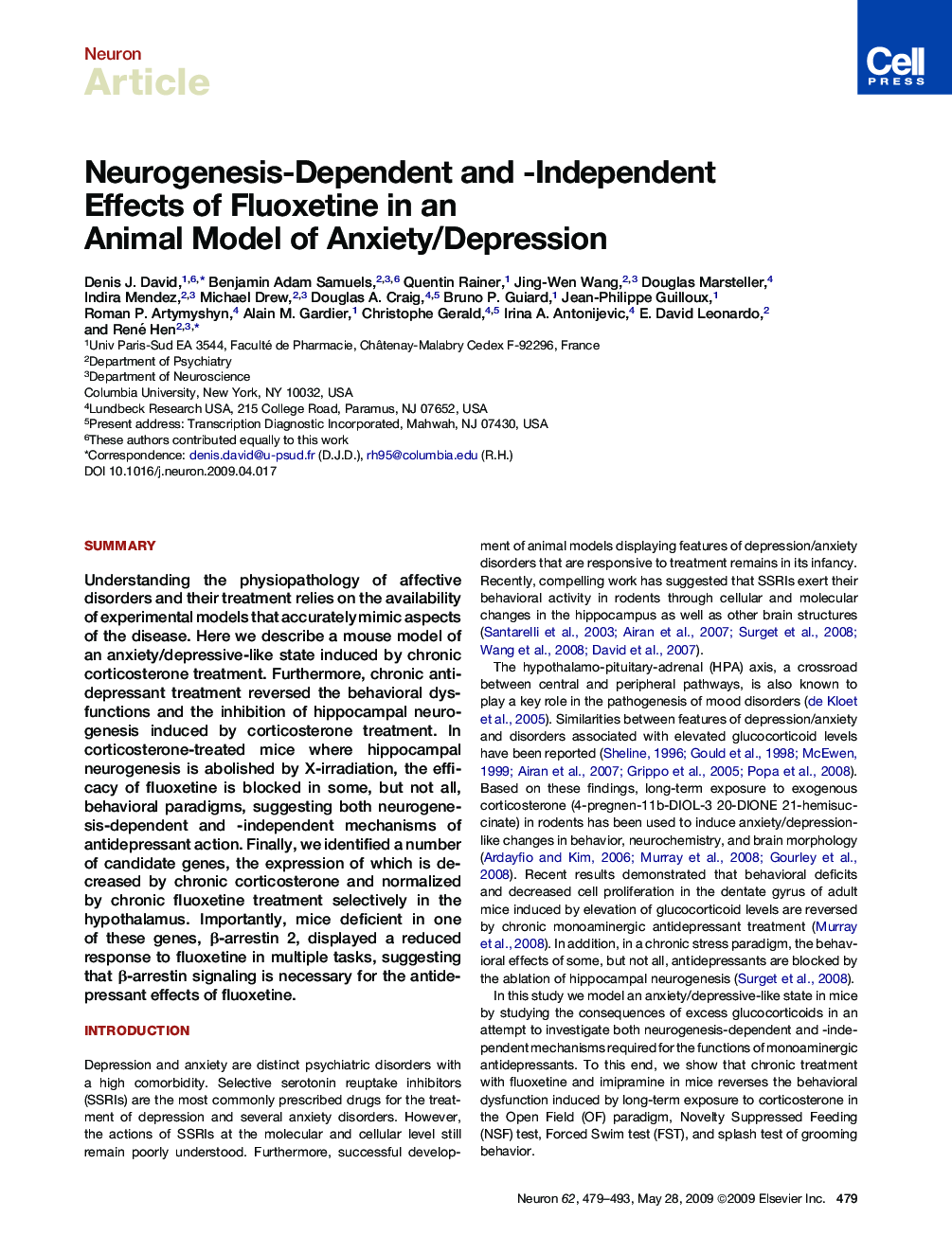| Article ID | Journal | Published Year | Pages | File Type |
|---|---|---|---|---|
| 4322245 | Neuron | 2009 | 15 Pages |
SummaryUnderstanding the physiopathology of affective disorders and their treatment relies on the availability of experimental models that accurately mimic aspects of the disease. Here we describe a mouse model of an anxiety/depressive-like state induced by chronic corticosterone treatment. Furthermore, chronic antidepressant treatment reversed the behavioral dysfunctions and the inhibition of hippocampal neurogenesis induced by corticosterone treatment. In corticosterone-treated mice where hippocampal neurogenesis is abolished by X-irradiation, the efficacy of fluoxetine is blocked in some, but not all, behavioral paradigms, suggesting both neurogenesis-dependent and -independent mechanisms of antidepressant action. Finally, we identified a number of candidate genes, the expression of which is decreased by chronic corticosterone and normalized by chronic fluoxetine treatment selectively in the hypothalamus. Importantly, mice deficient in one of these genes, β-arrestin 2, displayed a reduced response to fluoxetine in multiple tasks, suggesting that β-arrestin signaling is necessary for the antidepressant effects of fluoxetine.
